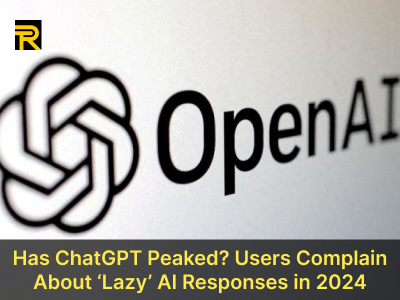
Meta’s Llama 3 Leak: What It Means for Open-Source AI Development
Meta’s Llama 3 Leak: What It Means for Open-Source AI Development
The recent leak of Meta’s Llama 3 AI model has sent ripples through the tech community. While open-source AI development thrives on transparency and collaboration, this incident raises critical questions about security, ethics, and the future of AI innovation. In this article, we’ll explore the risks of downloading leaked models, the ethical implications of using leaked weights, and how this leak impacts the broader open-source AI ecosystem.
What is Meta’s Llama 3?
Llama 3 is Meta’s latest large language model (LLM), designed to push the boundaries of natural language processing (NLP). As a successor to Llama 2, it promises improved performance, scalability, and versatility. However, the leak of its model weights has sparked debates about the risks and benefits of open-source AI development.
Meta Llama 3 Leaked Model Download Risks
Downloading and using the leaked Llama 3 model comes with significant risks:
1. Security Vulnerabilities
-
Leaked models may contain unpatched vulnerabilities, exposing users to potential attacks.
-
Malicious actors could exploit these vulnerabilities to compromise systems.
2. Legal Consequences
-
Using leaked models may violate intellectual property laws or licensing agreements.
-
Organizations could face legal action from Meta or other stakeholders.
3. Unverified Code
-
Leaked weights may differ from the official release, leading to unpredictable behavior.
-
There’s no guarantee that the leaked model is free from malicious code.
How to Use Leaked Llama 3 AI Locally
For researchers and developers who still want to experiment with the leaked Llama 3 AI locally, here’s a step-by-step guide:
1. Set Up a Secure Environment
-
Use an isolated virtual machine or container to prevent potential security risks.
2. Download the Leaked Weights
-
Obtain the leaked weights from a trusted source (though this is not recommended).
3. Install Dependencies
-
Install necessary libraries like PyTorch and Hugging Face’s Transformers.
4. Load and Test the Model
-
Load the model using the appropriate framework and test its functionality.
Impact of Llama 3 Leak on Open-Source AI Security
The Llama 3 leak has significant implications for open-source AI security:
1. Erosion of Trust
-
Leaks undermine trust in open-source projects, discouraging contributions.
2. Increased Scrutiny
-
Organizations may impose stricter controls on model releases, slowing innovation.
3. Rise of Malicious Use
-
Leaked models could be used for harmful purposes, such as generating disinformation.
Llama 3 Leaked Weights vs Official Release Differences
Understanding the differences between leaked weights and the official release is crucial:
1. Performance Variations
-
Leaked weights may not match the performance of the official model due to incomplete or altered files.
2. Feature Discrepancies
-
Some features in the official release may be missing or broken in the leaked version.
3. Ethical Concerns
-
Using leaked weights raises ethical questions about fairness and accountability.
Ethical Implications of Training AI on Leaked Models
The ethical implications of training AI on leaked models are profound:
1. Intellectual Property Violations
-
Using leaked models may infringe on Meta’s intellectual property rights.
2. Unintended Consequences
-
Models trained on leaked data could perpetuate biases or harmful behaviors.
3. Moral Responsibility
-
Developers must consider the broader impact of their work on society.
Meta Llama 3 Leak GitHub Repository Discussions
The leak has sparked intense discussions on GitHub repositories, with developers debating:
-
The legality of using leaked models.
-
The potential benefits and risks of open-source AI.
-
Best practices for securing AI models.
How the Llama 3 Leak Affects Hugging Face Policies
The leak has prompted platforms like Hugging Face to reevaluate their policies:
1. Stricter Upload Guidelines
-
Hugging Face may implement stricter checks to prevent the sharing of leaked models.
2. Enhanced Security Measures
-
The platform could introduce new tools to detect and remove unauthorized content.
Can Leaked Llama 3 Be Used Commercially?
Using leaked Llama 3 commercially is fraught with risks:
1. Legal Risks
-
Commercial use could lead to lawsuits or fines.
2. Reputational Damage
-
Companies using leaked models may face backlash from the community.
3. Unreliable Performance
-
Leaked models may not deliver consistent results, harming business operations.
Best Practices for Securing Open-Source AI Models
To prevent future leaks, developers should adopt best practices for securing open-source AI models:
1. Access Controls
-
Limit access to sensitive models and data.
2. Code Audits
-
Regularly audit code for vulnerabilities.
3. Encryption
-
Encrypt model weights and data to prevent unauthorized access.
Llama 3 Leak and Future of AI Transparency
The Llama 3 leak highlights the need for a balanced approach to AI transparency:
1. Open Collaboration
-
Encourage collaboration while safeguarding intellectual property.
2. Ethical Frameworks
-
Develop ethical guidelines for AI development and distribution.
3. Community Engagement
-
Foster dialogue between stakeholders to address concerns and build trust.
Conclusion
The Meta Llama 3 leak is a wake-up call for the open-source AI community. While it underscores the importance of transparency, it also highlights the need for robust security measures and ethical considerations. By adopting best practices for securing AI models and fostering responsible innovation, we can navigate the challenges posed by leaks and build a more trustworthy AI ecosystem.
Follow Us
Trending News
Newsletter
Join us to get latest News Updates



